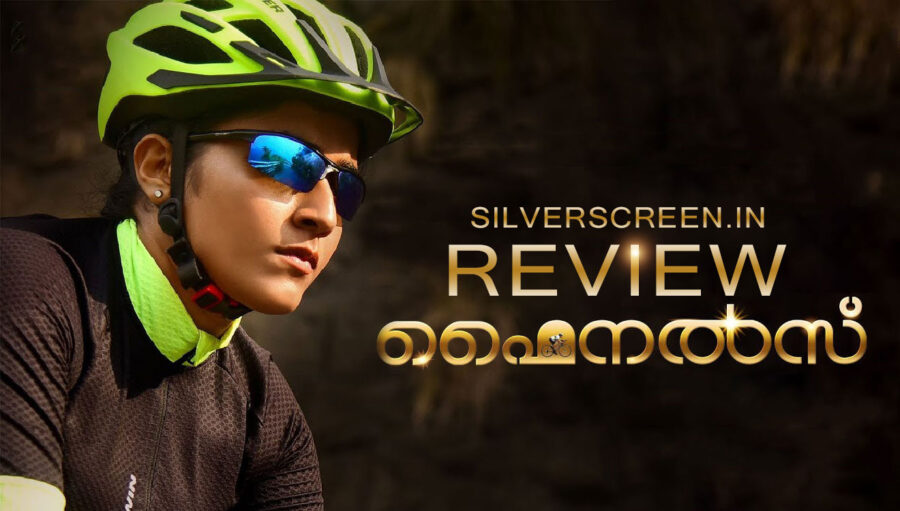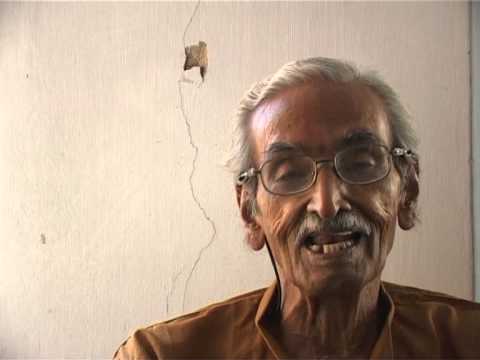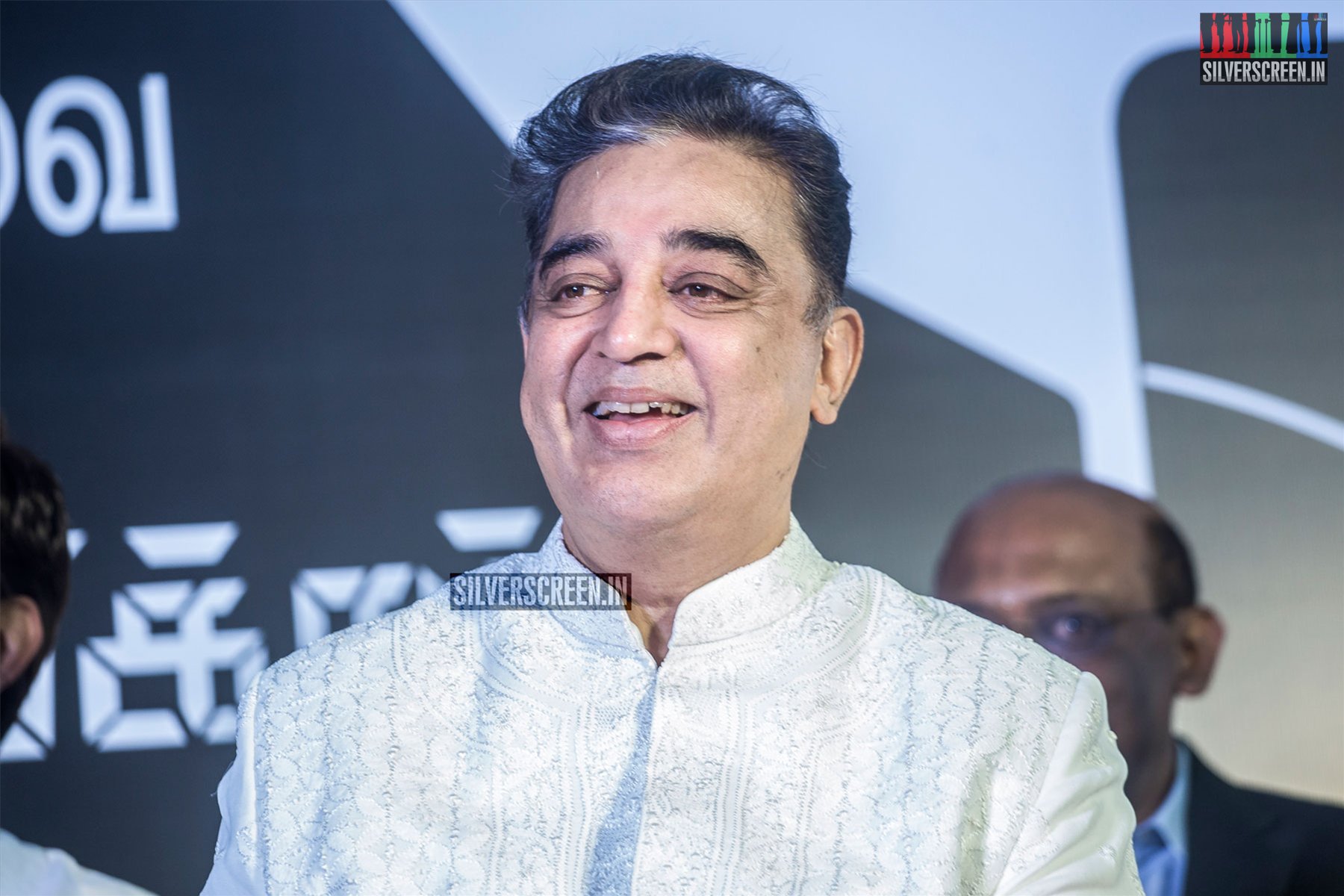At first glance, Arun PR’s Finals is a sports movie. Protagonist Alice (Rajisha Vijayan) is a cycling prodigy — a national champion and India’s Olympics medal hopeful. Her father Varghese (Suraj Venjaramoodu) is a former athletics coach. It opens to a scene where Alice is at the starting point of a crucial race. And then, it cuts to a flashback in her highland village. Alice, as a self-disciplined athlete, a motherless child who is committed to make her father proud, and a best friend who makes a promise to return.
Generic Indian sports dramas are less centered on sports than they are on scenes from the green room and training camps where prodigies grow and perish. Because, in a third world country the battles off-field are harsher than the mental and physical challenges a sports person has to face. This well-cut opening sequence establishes an instant connection between the film and the viewers. It subtly cues you where to look at.
Finals falls into several trappings of a archetypal movie about an underdog sports star. It packs in a lot of issues into the narrative – bureaucratic apathy, corruption, the broken sports infrastructure of the country and sexual harassment within these spaces – and talks about them in broad strokes. But, an interesting eye for human details sets the film apart. Close to 40 minutes into the film, the narrative shifts from Alice’s journey in the world of sports to the ordinary tale of the two people in her life – Varghese and her best friend Manuel (Niranj). You start seeing Varghese’s life in close-ups — his introversion, mild depression, the suicidal tendencies he battles, and the fierce love he has for his child. When his alternative athletics school starts to make champions out of children from the village, the state sports federation, with ample help from mainstream media and the police, entangles him in a fake legal case. He doesn’t revolt, but relegates himself to silence. When an athlete he had pinned all his hopes on, betrays him brutally, he is fleetingly captured by anger, but it immediately gives way to something else.
The writing, the choice of shots, shot length, and the performances in these scenes are exceptionally good. They break away from the ordinariness of the main plot. There are nice little touches, such as the newspaper cuttings carefully pasted on the bedroom wall of Manuel, and the album Varghese keeps dearly. The two men are entirely different people when it comes to their emotional responses to various issues and their attitude to life, but these pictures show how tightly bound they are. Arun uses few expository dialogues, and makes a good effort to design scenes in a way that the audience feels more than what it sees on the screen or hears.
One of the areas Arun lays emphasis on is in fleshing out Alice’s village as a metaphor for the three lead characters. Notwithstanding cliches such as overtly friendly neighbours, and agents of sweet nostalgia such as a milk-bun, the film does a good job of making a dialectic between the rural, where the real activity of physical training takes place, and the urban centres, a hot bed of political games. You see that the hilly terrain shaped the athlete in Alice, but softened her as a person. In the scene where Alice is felicitated at a casual gathering at the cycling club, a good amount of time is dedicated to a child reciting a poem about the village. There are locales such a viewpoint that you see repeatedly, in different scenarios.
When a sportsman from the city betrays him, Varghese returns to his village to discover and train a native prodigy. In the film’s latter half, two plot tracks – Varghese engrossed in coaching his discovery and the changing political climate in the state capital’s sports federation – are juxtaposed. It could be seen as a weak device that simplifies the issues it had been elucidating on, or a move that makes an interesting commentary on how an average life works in the lower middle classes. Varghese or Manuel don’t turn into activists or vigilantes, but are engrossed in what they know the best, while political upheavals happen in a different place without their involvement.
Suraj Venjarammood’s powerful performance as Varghese shoulders the film even in its weakest points. It’s not easy to figure him out. The heaviness in his body-language could easily be misunderstood as roughness. Suraj manages to walk a thin line between a strict taskmaster and a faint-hearted person unable to express his feelings. The surprise element in the film is Niranj who, finally in his career, manages to emerge out of the shadow of his famous father and hold his own in a film. There is good restraint in his body language, and he has great control over his voice — the everydayness of the Idukki dialect is smooth.
Recommended
One of the best things about Finals is its portrayal of the relationship shared by Alice and Manuel. The film doesn’t pause the moment when he sees her (or vice-versa). Manuel’s reaction to the tragedy that befalls her is also without any melodrama. The film knows that love is most moving when it arrives without any announcement. Finals might be quickly forgotten for its lack of an extraordinary story, but it signals the arrival of a filmmaker who isn’t plainly obsessed with style, and has a distinct sense of storytelling.
The Finals review is a Silverscreen original article. It was not paid for or commissioned by anyone associated with the film. Silverscreen.in and its writers do not have any commercial relationship with movies that are reviewed on the site.



